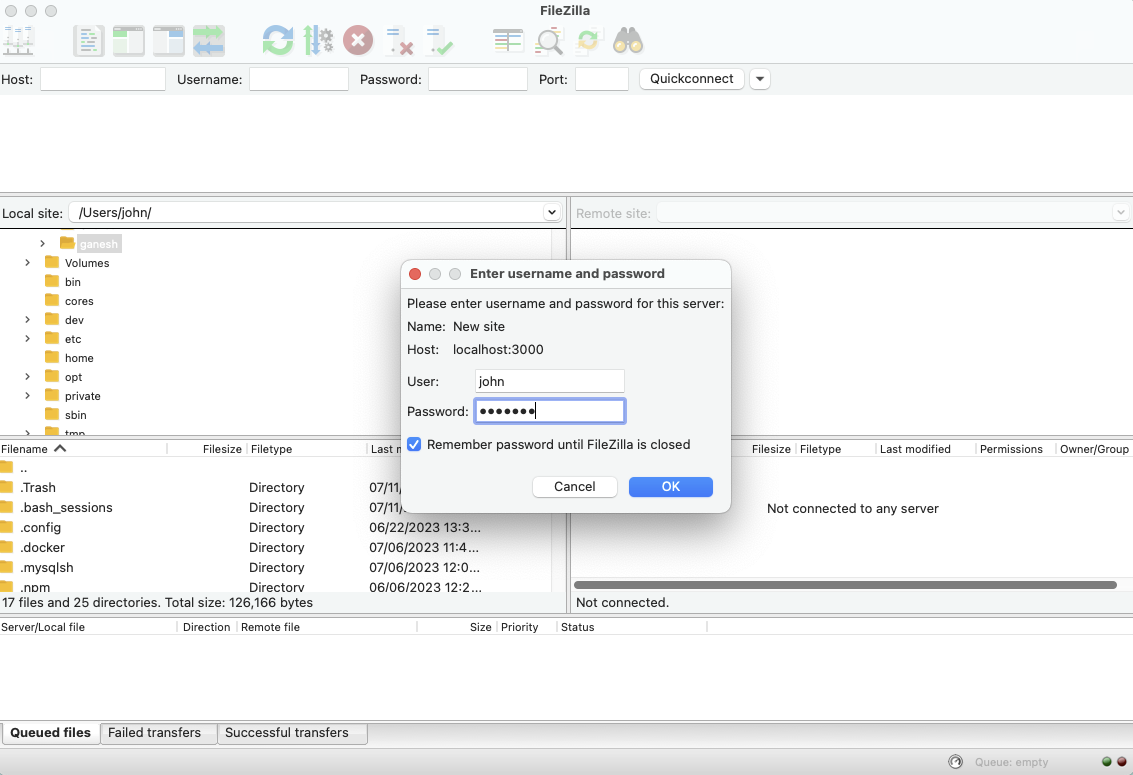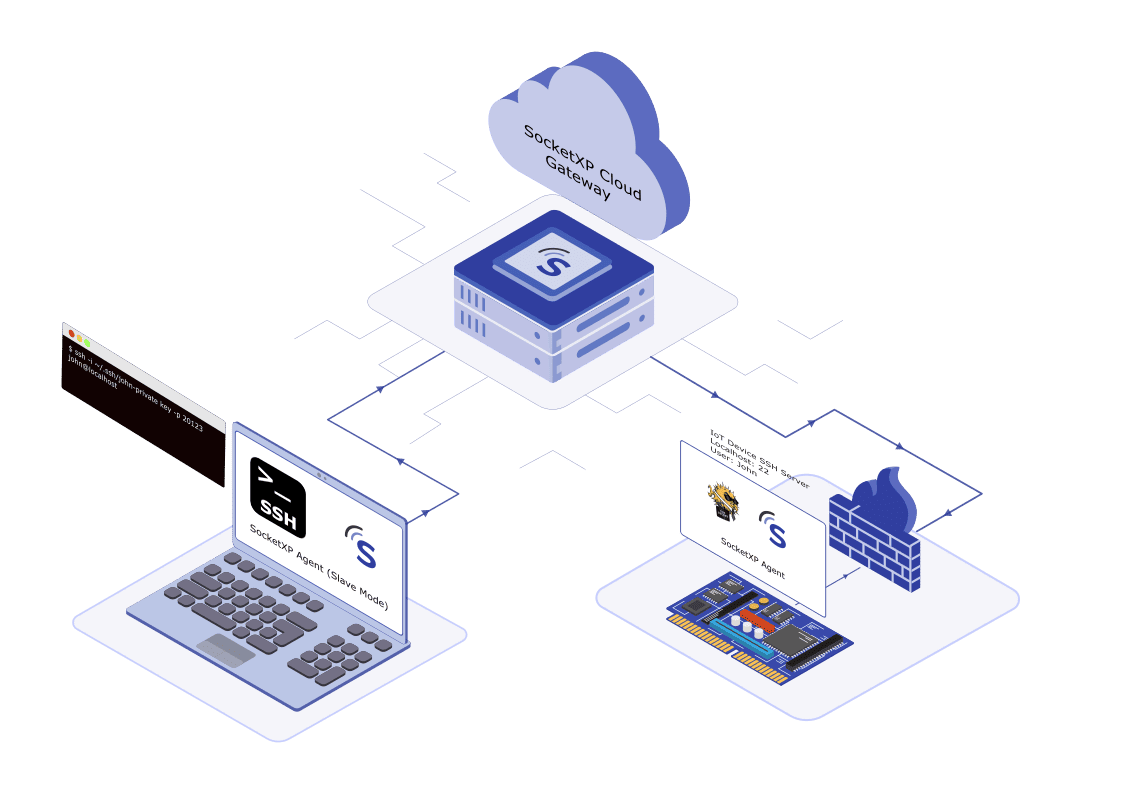In the era of the Internet of Things (IoT), remote access to devices has become essential for businesses and individuals alike. Remote IoT platform SSH download free options provide secure and cost-effective solutions for managing connected devices from anywhere in the world. This article explores the importance of remote IoT platforms, their functionality, and how to download and implement secure SSH solutions for your IoT infrastructure.
As IoT continues to expand, the need for secure and reliable remote access becomes increasingly important. Whether you're managing smart home devices or industrial sensors, having a robust remote IoT platform ensures that your devices remain accessible and secure at all times.
This comprehensive guide delves into the world of remote IoT platforms, focusing on SSH-based solutions that offer free downloads. We will cover everything from the basics of SSH to advanced implementation strategies, ensuring you have the tools and knowledge to secure your IoT ecosystem.
Read also:1 Blasters The Ultimate Guide To Understanding And Mastering The Revolutionary Technology
Understanding Remote IoT Platforms
What is a Remote IoT Platform?
A remote IoT platform refers to a software solution designed to enable users to manage, monitor, and interact with IoT devices remotely. These platforms typically include features such as data visualization, device management, and secure communication protocols like SSH. The primary goal of a remote IoT platform is to provide users with seamless access to their devices while maintaining the highest level of security.
- Remote monitoring of IoT devices
- Centralized device management
- Secure communication protocols
Importance of Remote IoT Platforms
In today's interconnected world, remote IoT platforms play a crucial role in enhancing operational efficiency. They allow users to manage their devices from anywhere, reducing the need for physical presence and minimizing downtime. Additionally, these platforms provide insights into device performance and health, enabling proactive maintenance and troubleshooting.
Data from Statista indicates that the global IoT market is expected to reach $1.1 trillion by 2026, highlighting the growing importance of remote IoT platforms in managing this expanding ecosystem.
Secure Shell (SSH): The Backbone of Remote IoT Platforms
What is SSH?
Secure Shell (SSH) is a cryptographic network protocol used for secure communication over unsecured networks. It provides encrypted data transfer, authentication, and integrity checks, making it an ideal choice for remote IoT platforms. SSH ensures that sensitive information, such as login credentials and device data, remains protected during transmission.
Advantages of Using SSH for IoT
Implementing SSH in your IoT infrastructure offers numerous benefits, including enhanced security, ease of use, and compatibility with a wide range of devices. Below are some key advantages:
- Encryption of data in transit
- Strong authentication mechanisms
- Platform independence
Free SSH Solutions for IoT
Popular Free SSH Clients
Several free SSH clients are available for users looking to implement secure remote access for their IoT devices. Some of the most popular options include:
Read also:Is Elon Musk Married In 2024 Unveiling The Truth Behind The Billionaires Love Life
- OpenSSH: An open-source SSH implementation widely used in Unix-like operating systems.
- PuTTY: A Windows-based SSH client that is easy to use and highly customizable.
- WinSCP: A free SFTP and SCP client for Windows that supports file transfers over SSH.
Downloading Free SSH Clients
Obtaining a free SSH client is straightforward. For example, OpenSSH can be installed on most Linux distributions by running a simple command, while PuTTY can be downloaded directly from its official website. Ensure that you download these clients from reputable sources to avoid security risks.
Setting Up a Remote IoT Platform with SSH
Choosing the Right Platform
Selecting the appropriate remote IoT platform depends on your specific needs and requirements. Consider factors such as scalability, ease of use, and integration capabilities when making your decision. Platforms like AWS IoT Core and Microsoft Azure IoT Hub offer robust SSH support and are suitable for large-scale deployments.
Configuring SSH on IoT Devices
Configuring SSH on IoT devices involves several steps, including enabling the SSH service, generating key pairs, and setting up firewall rules. Below is a step-by-step guide:
- Enable the SSH service on your IoT device.
- Generate an SSH key pair using a tool like ssh-keygen.
- Copy the public key to the device's authorized_keys file.
- Configure firewall rules to allow SSH traffic.
Security Best Practices for Remote IoT Platforms
Implementing Strong Authentication
Strong authentication is critical for securing your remote IoT platform. Use SSH key pairs instead of passwords whenever possible, as they provide a higher level of security. Additionally, consider implementing two-factor authentication (2FA) for an extra layer of protection.
Regularly Updating Firmware and Software
Keeping your IoT devices and software up to date is essential for maintaining security. Regular updates ensure that any vulnerabilities are patched promptly, reducing the risk of unauthorized access.
Case Studies: Real-World Applications of Remote IoT Platforms
Smart Agriculture
In the agricultural sector, remote IoT platforms enable farmers to monitor and control irrigation systems, soil moisture levels, and weather conditions from a distance. By integrating SSH for secure communication, these platforms provide farmers with the tools they need to optimize crop yields and reduce resource consumption.
Industrial Automation
Remote IoT platforms are also widely used in industrial automation, where they allow engineers to manage and troubleshoot machinery from remote locations. SSH ensures that sensitive production data remains secure during transmission, maintaining operational integrity.
Common Challenges and Solutions
Overcoming Connectivity Issues
One of the primary challenges in implementing remote IoT platforms is ensuring reliable connectivity. To address this issue, consider using cellular or satellite connections as backup options. Additionally, implementing failover mechanisms can help maintain communication in case of network outages.
Managing Large-Scale Deployments
Scaling remote IoT platforms to accommodate thousands of devices can be complex. Utilize cloud-based solutions like AWS IoT Core or Microsoft Azure IoT Hub to handle large-scale deployments efficiently. These platforms offer scalable infrastructure and advanced features like device provisioning and monitoring.
Future Trends in Remote IoT Platforms
Edge Computing
Edge computing is poised to revolutionize remote IoT platforms by processing data closer to the source. This approach reduces latency and bandwidth consumption, enabling real-time decision-making and faster response times.
Artificial Intelligence Integration
Integrating artificial intelligence (AI) into remote IoT platforms enhances their capabilities by enabling predictive maintenance, anomaly detection, and automated decision-making. AI-driven platforms can significantly improve operational efficiency and reduce costs.
Conclusion
Remote IoT platform SSH download free solutions offer a cost-effective and secure way to manage IoT devices from anywhere in the world. By understanding the basics of SSH, selecting the right platform, and implementing best practices, you can ensure the security and reliability of your IoT ecosystem.
We encourage readers to explore the options discussed in this article and take advantage of free SSH clients to secure their IoT infrastructure. Share your thoughts and experiences in the comments below, and don't forget to check out our other articles for more insights into the world of IoT.
Table of Contents
- Understanding Remote IoT Platforms
- Secure Shell (SSH): The Backbone of Remote IoT Platforms
- Free SSH Solutions for IoT
- Setting Up a Remote IoT Platform with SSH
- Security Best Practices for Remote IoT Platforms
- Case Studies: Real-World Applications of Remote IoT Platforms
- Common Challenges and Solutions
- Future Trends in Remote IoT Platforms
- Conclusion


